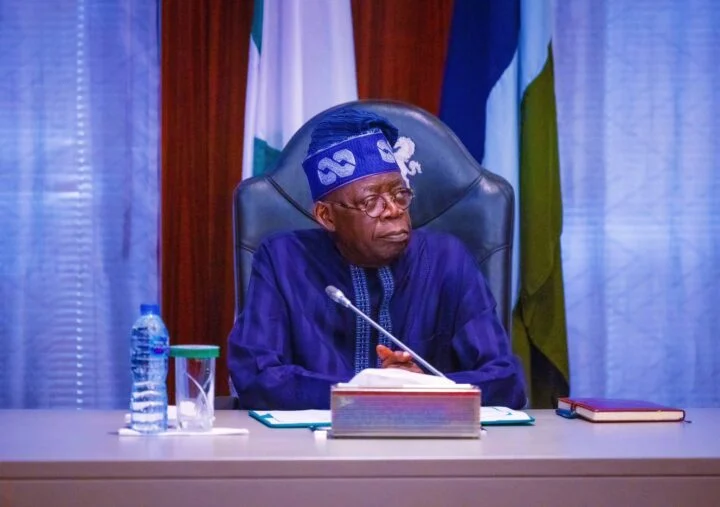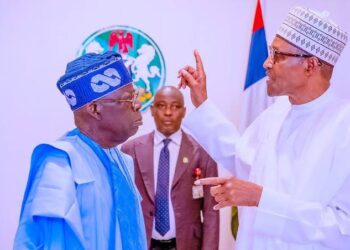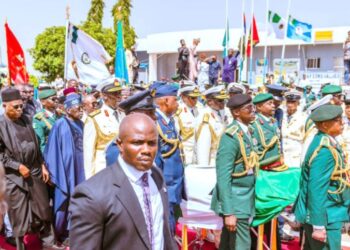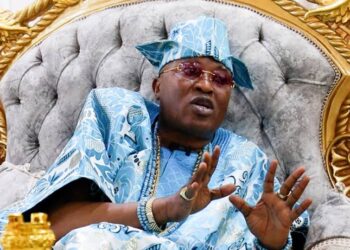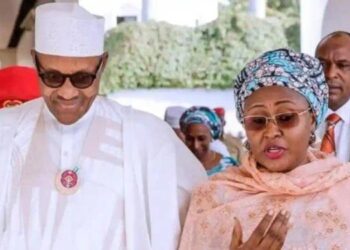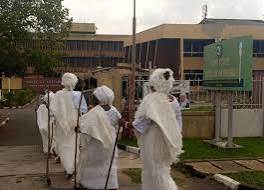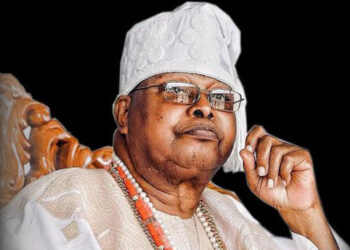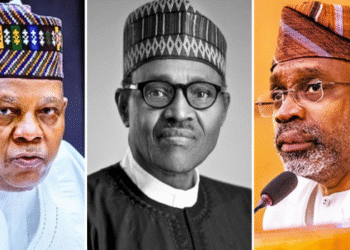There appears to be no end in sight to the internal crisis bedeviling the Labour Party (LP) which had a good outing with its presidential candidate, Peter Obi in the 2023 general election, Daily Trust Saturday reports.
The Labour Party (LP) in Nigeria is currently embroiled in multi-faceted crises, surprising many observers, given the country’s volatile political landscape and the success recorded by the party in the 2023 general elections.
But these new rounds of crises have a historical background as leadership crises have been with the party since 2020.
The incumbent national chairman of the Zenith Labour Party (ZLP), Dan Nwanyanwu, a lawyer, concluded his terms as the national chairman of the LP and handed over to the late Alhaji Abdulkadir Abdulsalam in October 2014.
The death of Alhaji Abdulsalam in December 2020 resulted in a crisis as party leaders scrambled to emerge as the new national chairman. However, this was managed and resolved, eventually culminating in the emergence of Julius Abure as acting and eventually the subsisting national chairman of the party. Before his emergence as chairman in 2021, he was a national legal adviser and national secretary.
A former deputy national chairman of the party, Chief Calistus Okafor, however, challenged Abure after he claimed to be the authentic national chairman of the party by virtue of his position.
The LP, founded in 2002 by the Nigeria Labour Congress (NLC), was previously known as the Party for Social Democracy (PSD) before formally changing to its current name the following year after the 2003 general elections.
But apart from producing Olusegun Mimiko as the governor of Ekiti State in 2009, the party has had moderate success. This, however, changed on May 27, 2022 when a former Anambra State governor, Peter Obi, joined the party with members of his Obidient Movement shortly after he left the Peoples Democratic Party (PDP) in a bid to contest the 2023 presidential election.
With this influx of new members, the party enjoyed unprecedented success in the 2023 elections, coming in third in the presidential election and winning a handful of federal and state legislative seats, as well as the governorship seat in Abia State.
Apapa tussles with Abure
But with this newfound fame came a new round of crisis for the party. Trouble started for the party soon after the 2023 general elections when some members under the leadership of Alhaji Lamidi Apapa and Abayomi Arabambi accused the national chairman, Abure, of mismanaging the party’s funds.
Abure was accused of running the affairs of the party like a personal estate, a charge Abure denied. This led to the factionalisation of the party.
The Abure-Apapa feud went from courts to some states of the federation, with accusations and counteraccusations on who had the genuine interest of the party at heart and who was its genuine leader.
The crisis was, however, resolved in favour of Abure after court declarations and the massive support he enjoyed among majority of the National Working Committee (NWC) and National Executive Council (NEC) of the party.
In one of the decisive court judgements on the LP crisis, Justice Hamma Barka of the Court of Appeal in Benin, Edo State, read the decision of the court in a unanimous decision by a three-member panel of Justices, confirming Abure as LP chairman.
The judgement vacated an order of April 5, 2023 by Justice Hamza Muazu, which restrained Abure from parading himself as the LP chairman. The High Court order was a fallout of a suit filed by the Chief Lamidi Apapa-led faction of the party.
Treasurer accuses chairman of financial impropriety
As the dust was settling down on the Apapa legal tussle and the party was trying to chart a new way forward, the now suspended national treasurer of the party, Mrs Oluchi Oparah, in February this year, accused the party chairman of financial impropriety, demanding that Abure accounts for the party’s funds of over N3.5billion being the proceeds of the sale of forms and other fundraisers for the 2023 general elections.
However, Abure, in a response signed by the national publicity secretary, Obiora Ifoh, stated that Mrs Oparah was being sponsored to tarnish the party’s image and she would be referred to the disciplinary committee of the party for appropriate actions, which later resulted in her suspension for six months.
While the party’s NWC quickly dropped the sledgehammer on Mrs Oparah, its presidential candidate and leader, Peter Obi, demanded a thorough investigation of the allegation against the party chairman.
Abure arrested in Benin
On February 21, a combined force of armed policemen and operatives of the State Security Service (SSS) arrested the embattled Abure in Benin, Edo State.
Two of the members of the National Working Committee had confirmed the development to the Daily Trust in Abuja.
Abure was reportedly arrested on the allegation of attempted murder, among other infractions.
The arrest followed a petition by a former LP youth leader, Comrade Eragbe Anselm Aphimia, who was expelled in the wake of the crisis rocking the party in 2023.
Reacting to the development, the party’s national spokesman, Ifoh, claimed that the arrest was to frustrate the party’s primary election process in Edo State and possibly interrupt its participation in the forthcoming governorship election.
But following protests by Obi, LP leaders, party members and other Nigerians, Abure was released on bail the following day.
Party’s convention births another round of controversy
As if the crises in the party were not enough, its quest to hold a national convention led to another round of crisis.
The party’s spokesman, in a statement, berated its House of Representatives caucus for calling for a shift in the party’s planned national convention, saying they had failed to be true ambassadors of the people.
Ifoh also warned the lawmakers to respect party supremacy or face disciplinary action.
The LP caucus leader in the House, Afam Victor Ogene, had said the postponement was necessary to allow for further consultations in light of the party’s lingering leadership crisis.
Daily Trust Saturday also reports that the national convention pitched the party against the Nigeria Labour Congress (NLC).
The NLC and some members of the Obidients Movement called for the sack of the national chairman of the LP for planning to hold a convention without the input of stakeholders in the party.
The NLC, in a statement by its Political Commission, called for the suspension of the planned convention and setting up of a caretaker transition committee to organise a legitimate convention. This led to a row between the NLC and LP, with Abure asking the president of the NLC to resign and contest for the position of LP chairman.
To drive home its message, the NLC decided to picket the national secretariat of the party. But this yielded little or no difference as the party went ahead with the convention after changing its venue from Awka to Nnewi in Anambra State. The convention had earlier been scheduled to take place in Benin City, Edo State before it was moved to Abia State.
While the party eventually held the controversial national convention in Anambra State, where it re-elected Abure as national chairman, the development has further widened the cracks in it.
Our source on Saturday reports that the absence of the Independent National Electoral Commission (INEC) at the convention as one of the mandatory requirements for a convention has thrown up a legal debate on the legality of the exercise.
Also, the absence of notable leaders of the party, including its presidential candidate, Peter Obi, and senators Victor Umeh and Tony Nwoye, raised concerns that the last might not have been heard.
Obi, who is popular on X (formerly Twitter), where he always shares his thoughts on topical issues, has conspicuously avoided the issue of the party, even after it was widely reported that it decided to reserve its 2027 presidential ticket for him. As at Friday afternoon when our reporter last checked, he had not made any post about the convention, the presidential ticket or the current crisis raging in his party.
One of the elected national officers of the party, who insisted on not being named, also told Daily Trust Saturday that INEC’s absence at the convention was a major issue, but that the party would address the development soon.
“We will address this very soon. We are moving, and when we get to this (INEC’s absence at the Anambra convention) bridge, we will know how to cross it,” the official said.
As the crises in the party remain unabated, its Board of Trustees (BoT) said it had taken over its affairs, arguing that the new position is in line with its constitution. The BoT said it would reclaim the party from Julius Abure, but its NWC said it did not recognise such body.
Akande, Ameh speak
Speaking on the crises rocking the party, a former spokesman of former Vice President Yemi Osinbajo, Laolu Akande, asked Peter Obi, Governor Alex Otti of Abia State and the NLC to work together to save it.
Akande, who spoke in an interview on Channels TV, said, “I think the leadership of the LP as it is presently constituted doesn’t seem to understand the role the Labour Party has come to play in the development of the democratic space in Nigeria.
“During the last election, the Labour Party showed that it is still very possible for people to be mobilised. For people who are otherwise not impressed by the two dominant parties, the party has shown that they can still be brought into the space and the conversation. It is a major dynamic. Now, if Abure and his friends understand this, they will not put their interests ahead of those of the Nigerian people,” Akande said.
Also, a former national chairman of the Inter Party Advisory Council (IPAC), Chief Peter Ameh, said the internal conflict in the LP was not peculiar to it, adding that it could be resolved with proper application of internal democratic processes through the use of appropriate organs.
He urged the leadership of the party to overcome their inability to manage internal affairs in an inclusive manner, which is most evident in the crises seen so far.
As the LP navigates these challenges, its future remains uncertain, with questions arising about its ability to overcome internal divisions and maintain its relevance in Nigerian politics.



